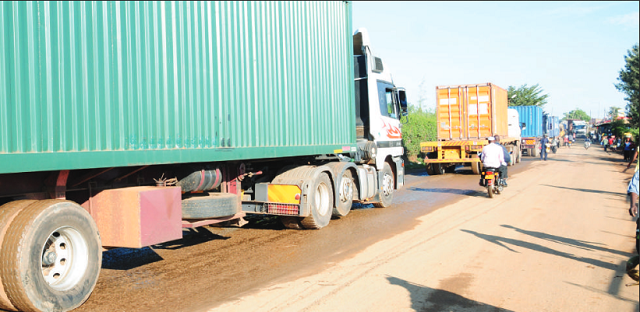
Single Electronic Window: The new system will see a 30% reduction in transaction costs for the private sector
Uganda Revenue Authority (URA) has launched the Uganda Single Electronic Window system. The new system will see a 30% reduction in transaction costs for the private sector, writes Juddie Kilungu.
It will also reduce the average trade document processing time by 30% as it allows people involved in trade and transport to lodge standardised information and documents in a single entry point to fulfill all import, export and transit related regulatory requirements. These documents include custom declarations, trading invoices, applications for import and export permits and certificate of origins.
The system reduces cargo clearance time by a factor of 5 and potentially leads to increases in collection of custom duties and taxes. Business people will now be able to submit documents to different regulatory agencies through a single port compared to the previous practice of moving from one place to another. The system will also reduce on paper work since business people will have to submit their papers online. It is also supported by a tracking system which monitors cargo from the point of entry to destination which avoids dumping and theft.
The US$5 million project has been implemented by Trademark East Africa, a trade improvement agency and supported by DFID and DANIDA; the development arms of the British government and Royal Danish embassy respectively.
At the launch (UeSW), at the URA main offices at Nakawa on Nov. 04, URA Commissioner General Doris Akol said the journey to the Single Electronic Window System began on September 16, 2014 with the signing of bilateral agreement between Uganda, the Royal Danish embassy and Trademark East Africa.
She said the system will bring about massive reduction in bureaucracy and red tape, achieve and optimise benefits such as reduction of costs, efficient deployment of resources, and regulating agents. She said the system is transparent which will improve revenue yields, and apply risk management techniques to improve controls.
“The outcome of that will be more accurate trade statistics on transactions, time releases, revenue generated, as well as compliance statistics,” Akol said.
The CEO of Trademark East Africa, Frank Matsaerti said that according to a World Bank report, in 2010 it used to take about 37 days and US$3,190 to transport a tonne of cargo from Uganda to Mombasa port in Kenya but by 2017 it will reduce to five days at a cost of US$389. On imports, it used to take 34 days and US$3,390 dollars but is set to reduce to 12 days and US$785.
“This will keep the economy moving and particularly the exports moving with 30% reduction in the time of delays,” he explained.
The Uganda Senior Programme Manager of Trademark East Africa, Moses Sabiiti, says that the project is demand driven. He said that since the project was initiated by the private sector the benefits for this product should mainly go to it.
“It will reduce the delays, reduce the reduction time and cost by over 30% since there will be different agencies working together as one. This will improve business in Uganda because investors look for competitive countries to invest in and the single window does that for Uganda,” he said.
The System has the Ministry of Trade Industry and Cooperatives as the lead coordinating Agency and URA as the implementing Agency. Other agencies involved include; Export Promotion Board (UEPB) ,Uganda National Bureau of Standards(UNBS) ,National Drug Authority(NDA),Ministry of Energy and Mineral Development(MOEMD),Ministry of Agriculture(MAAIF) and Uganda Revenue Authority (URA) , Ministry of Foreign Affairs (MOFA) and Coffee Development Authority (UCDA).
This was the first phase of implementation and interfaces have been developed and rolled out to all involved agencies. The second phase of implementation will focus on development of the system for roll out to more key agencies.
These include Uganda Investment Authority (UIA), Uganda Registration Services Bureau (URSB), Immigration department, selected private sector clearing and forwarding agencies, National Identification and Registration Authority (NIRA), Uganda Nation Roads Authority (UNRA), Diary Development Authority (DDA), National Environment Authority (NEMA), Uganda Bureau of Statistics (UNBoS), Uganda National Chamber of Commerce and industry (NCCI), National Forestry Authority (NFA),Kampala Capital City Authority (KCCA) and Uganda shippers Council.
****
editor@independent.co.ug
 The Independent Uganda: You get the Truth we Pay the Price
The Independent Uganda: You get the Truth we Pay the Price



